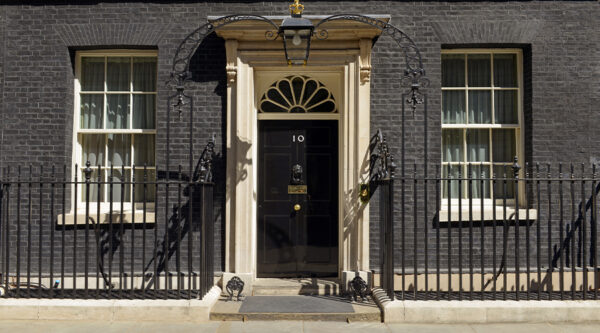

Sentebale, the charity co-founded by Prince Harry, the Duke of Sussex, has been issued with a Regulatory Action Plan after the Charity Commission found that its well-publicised internal dispute “severely impacted the charity’s reputation and risked undermining public trust in charities more generally”.
What happened between Prince Harry and Sentebale?
The Charity Commission announced in April that it was gathering evidence and assessing whether Sentebale, which supports children and young people in southern Africa, and its trustees were fulfilling their duties in compliance with charity law.
The investigation was launched following the Duke of Sussex’s announcement that he was stepping down from the charity, having previously served as trustee and, later, a patron of the charity.
Prince Harry and his co-founder, Prince Seeiso of Lesotho, said they were resigning as patrons of the charity “in support of and solidarity with the board of trustees”.
He spoke of a breakdown in relationship between Sentebale’s trustees and the chair of the board, Dr Sophie Chandauka, which resulted in an “untenable situation”.
What followed was a public war of words, with Dr Chandauka saying Sentebale is not “a vanity project from which I can resign when I’m called to account”. She accused Prince Harry of behaving as if he is “above the law” and “playing the victim card” when his conduct is challenged.
Public trust in the charity sector
The Charity Commission regularly researches and reports on levels of public trust in the charity sector. Its 2025 report, published in July, found that, while overall average trust in charities has remained consistently high since 2020, the proportion of those with low trust has slightly increased since 2024 from 9% to 10%.
The Commission prides itself on overall trust in the charity sector, with 57% of the public having high trust in charities. Only public trust in doctors ranks higher. Comparatively, the ‘ordinary’ person on the street and members of parliament enjoy high trust from only 31% and 15% of the public respectively.
This year’s report found that scandals involving charities made participants more sceptical about new charities and those that have received high media exposure.
Findings of the Charity Commission’s compliance case into Sentebale
The Commission confirmed it would not normally involve itself with internal disputes, stating its role as regulator is not to act as an adjudicator or mediator.
However, the public and high-profile nature of the Sentebale dispute – which the Charity Commission deemed to threaten wider public trust in charities – will have informed its decision to investigate whether Sentebale’s current and former trustees, including the chair, fulfilled their duties and responsibilities under charity law.
The Commission’s findings were as follows:
- The delegation of powers to the chair of trustees was a confusing, convoluted and poorly governed process
- Trustees failed to have proper processes and policies in place to investigate internal complaints
- More generally, a lack of clear policies contributed to the failure to resolve disputes
- Public statements made to the media and criticisms made in television interviews were not conducted in a way that served the charity’s best interests.
However, it found no evidence of:
- Widespread or systemic bullying or harassment, including misogyny or misogynoir at the charity
- ‘Over-reach’ by either Dr Chandauka as chair or the Duke of Sussex as patron.
In particular, the Commission was critical of the convoluted delegated powers process and the lack of suitable policies to deal with internal complaints. It found that both failures amounted to mismanagement in the administration of Sentebale.
The Commission also set out that it expects the charity to clearly define its patron role in writing.
Concluding, the Commission urged trustees of all charities to “not lose sight” of the best interests of their charity or, more importantly, their beneficiaries in the event of a disagreement.
A Regulatory Action Plan was issued to the current trustees of Sentebale, requiring clearer and improved policies for internal disputes, complaints and whistleblowing, and delegation of authority.
Lessons learned
David Holdsworth, Chief Executive of the Charity Commission, offered some closing remarks on the investigation and its impact on the wider charity sector.
He said: “Passion for a cause is the bedrock of volunteering and charity[…] however, in the rare cases when things go wrong, it is often because that very passion has become a weakness rather than a strength.”
Holdsworth reflected that the public nature of Sentebale’s problems harmed its reputation, risked overshadowing its many achievements and jeopardised its ability to deliver for the beneficiaries it was created to serve.
He concluded by warning that Sentebale is an example of what can happen where gaps exist in governance and policies which are critical to a charity’s ability to deliver for their cause.
Are your policies and procedures in need of review?
The Sentebale investigation is a stark reminder that all charities, regardless of size or prestige of leadership, can be set back by something as simple as a disagreement.
The Commission was particularly critical of the absence of suitable policies and procedures to deal internal disputes.
Charities may wish to review their existing policies and consider the following:
- What happens in the event of a disagreement?
- Can disputes be resolved informally in the first instance?
- Do your policies require mediation with an independent party?
- Are there mechanisms in place for when the chair of trustees themselves is involved in the dispute?
- Do trustees understand their confidentiality requirements and where there’s a dispute, should policies include limitations on public statements and appearances?
- Does your charity have patrons? If so, is their role clearly defined and are they also subject to your charity’s policies and procedures?
Our expert charities team can support with reviewing your existing policies.










